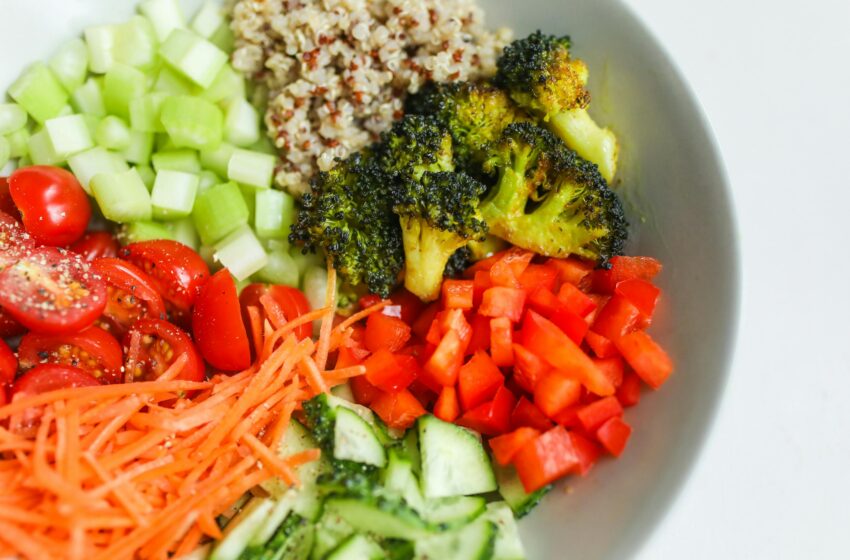Feeding Your Mind: How Nutrition Impacts Mental Health

Hey there, lovely readers! Today, we’re diving into a fascinating topic that’s close to our hearts: the powerful connection between what you eat and how you feel mentally. It’s incredible to think that something as simple as your diet can have such a significant impact on your mood and overall mental well-being. Let’s explore this magical relationship between food and mental health together!
Essential Nutrients for Elevating Your Mood
Ever heard of the phrase “you are what you eat”? Well, when it comes to mental health, this couldn’t be more accurate. Certain essential nutrients play a crucial role in keeping your mood in check and your mind feeling good. Omega-3 fatty acids, B vitamins, and magnesium are like little superheroes for your brain, helping to regulate neurotransmitters and support optimal cognitive function.
Omega-3 fatty acids, found in abundance in fatty fish like salmon and walnuts, are known for their anti-inflammatory properties and mood-boosting benefits. Meanwhile, B vitamins, which can be found in whole grains, leafy greens, and eggs, help your body convert food into energy and support the production of neurotransmitters like serotonin, the “feel-good” hormone. And let’s not forget about magnesium, a mineral that plays a role in over 300 biochemical reactions in the body, including those related to mood regulation.
The Incredible Gut-Brain Connection
Did you know that your gut is often refer to as your “second brain”? It may sound a bit strange, but the gut-brain axis is a real thing, and it plays a significant role in your mental health. The gut microbiome, made up of trillions of bacteria that reside in your digestive tract, communicates directly with your brain via the vagus nerve, influencing your mood, behavior, and even cognitive function.
By maintaining a healthy gut microbiome through a balanced diet rich in fiber, fermented foods, and prebiotics. You can support a positive mental state. So, next time you reach for that yogurt or load up on veggies, know that you’re not just feeding your body—you’re nourishing your mind as well.
Boost Your Mood with Food
Let’s talk about food that makes you feel good—literally! Incorporating mood-boosting foods into your diet can have a profound impact on how you feel on a day-to-day basis. Fatty fish like salmon and mackerel are rich in omega-3s and are known to support brain health and elevate mood. Leafy greens, such as spinach and kale, are pack with folate, a B vitamin that’s essential for mental well-being.
And let’s not forget about fermented foods like yogurt, kimchi, and sauerkraut. These probiotic-rich delights can promote a healthy gut microbiome, which, as we’ve learned, is crucial for maintaining a positive mood. So, go ahead and indulge in these delicious and nutritious foods to give your mental health a boost!
The Impact of Processed Foods on Your Mind
We can’t talk about nutrition and mental health without addressing the elephant in the room: processed foods. These convenient, yet often nutrient-poor options can wreak havoc on your mental well-being. Foods high in sugar, refined carbs, and artificial additives can lead to blood sugar imbalances, inflammation, and even mood swings.
By reducing your intake of processed foods and instead focusing on whole, real foods like fruits, vegetables, whole grains, and lean proteins. You can support a stable mood and mental clarity. It’s all about making small, sustainable changes that can have a big impact on your overall well-being.
Lifestyle Factors That Influence Your Mental Health
While nutrition plays a crucial role in mental health. It’s essential to consider other lifestyle factors that can impact your mood and emotional well-being. Getting an adequate amount of sleep, engaging in regular physical activity. And managing stress effectively are all key components of maintaining a healthy mind.
By creating a holistic approach to mental health that includes nourishing your body with the right foods. Prioritizing rest and relaxation, and staying active, you can set yourself up for a positive mindset and a happier, healthier life.
Conclusion
As we wrap up our exploration of nutrition and mental health, I hope you’ve gained valuable insights into how what you eat can truly feed your mind and elevate your mood. Remember that small changes in your diet and lifestyle can make a big difference in how you feel mentally and emotionally.
So, the next time you sit down to a meal, think about how you can nourish not just your body. But also your mind. Your mental health matters, and taking care of it through good nutrition and self-care practices is one of the best gifts you can give yourself. Here’s to feeding your mind and thriving with a smile on your face!
